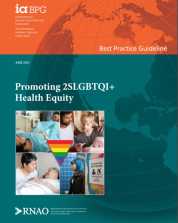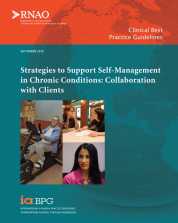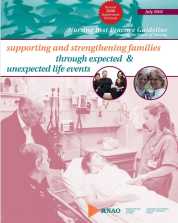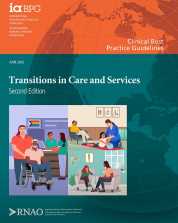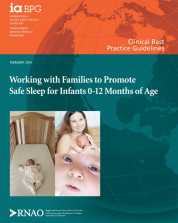The purpose of this best practice guideline (BPG) is to provide nurses and other members of the interprofessional team with evidence-based recommendations on foundational, inclusive care practices for 2SLGBTQI+ people.
The purpose of this best practice guideline (BPG) is to provide nurses and the circle of care with evidence-based recommendations on culturally safe and meaningful ways to support smoking reduction and cessation with Indigenous Peoples of reproductive age, their support networks and communities to improve health and wellness.
The purpose of this best practice guideline (BPG) is to provide evidence-based recommendations for registered nurses and registered practical nurses in self-management support. These recommendations identify strategies and interventions that enhance an individual’s ability to manage their chronic health condition.
The purpose of this best practice guideline (BPG) is to assist nurses in promoting family health through interventions and supports provided during expected as well as unexpected life events. Expected life events may include birth, school, adolescence, aging, and death, while unexpected life events may include trauma/accidents, chronic illness, developmental delay and disability.
The purpose of this best practice guideline (BPG) is to provide evidence-based recommendations for nurses and members of the interprofessional team, organizations and the health system. These recommendations support safe and effective transitions in care for pediatric and adult persons and their support network.
The purpose of this best practice guideline (BPG) is to address the question of how health-care providers can partner with families to promote safe sleep for infants 0-12 months of age to reduce known risk factors for injury and death.
